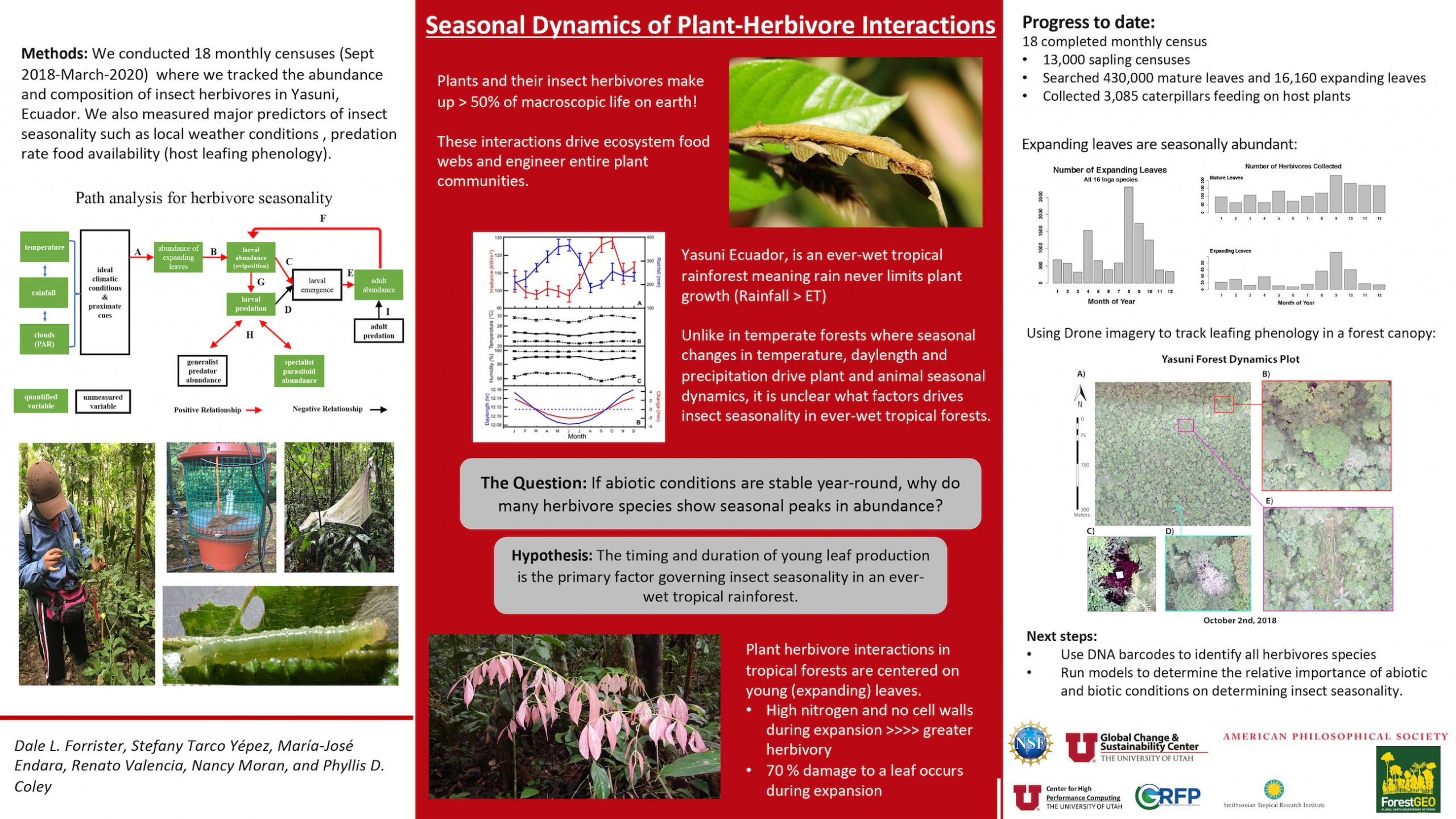Drivers of Insect Seasonality in Yasuni, Ecuador
-Dale L Forrister and Phyllis D Coley
[bs_collapse id=”collapse_3670-65bc”]
[bs_citem title=”Bio” id=”citem_f943-be38″ parent=”collapse_3670-65bc”]Born and raised on a dirt road surrounded by forest in rural Vermont, I’ve always grown up with an appreciation for nature. In college, I decided to head west to studied Biology, Chemistry, and Spanish at Lewis & Clark College, in Portland, OR. Living in the Pacific North West opened my eyes to how beautiful and awe-inspiring pristine old growth forests can be. I’ve greatly enjoyed living in Utah for the past 5 years and exploring its natural wonders through backpacking, biking, hiking and skiing.
As a graduate student I have been able to connect my deep seated passion for Latin America and interest in forest ecology through my work in Yasuni, Ecuador studying tropical trees and their insect herbivores.[/bs_citem][bs_citem title=”Abstract” id=”citem_85b9-6a18″ parent=”collapse_3670-65bc”]In this study we set out to understand what factors govern seasonal abundance cycles of insect herbivores in the lowland tropical rainforest located in Yasuni, Ecuador. This site is an ever-wet tropical forest meaning precipitation is never limiting and because this forest is located on the equator temperature and day length are nearly constant year round. Never the less we have observed large seasonal shifts in the abundance of insect herbivores. Every month for 18 months we surveyed the herbivore community at this site collecting samples used to track the abundance of each herbivore species and tracking food availability, predation rate as well as weather conditions. I am are currently using DNA barcoding to identify all herbivore samples that we collected to species. From these data I will test my hypothesis that herbivores are limited by the production of new leaves, their primary food source.[/bs_citem][bs_citem title=”Narrative” id=”citem_58a2-807e” parent=”collapse_3670-65bc”]For my Ph.D. dissertation I study the seasonal dynamics of plant herbivore interactions in Yasuní, Ecuador, the most diverse tropical rainforest forest in the world. Unlike in the temperate zone where seasons are a simple fact of life, Yasuni is located on the equator and and enjoys stable temperature, rainfall and day-length year round. Nevertheless, we see huge shifts in herbivore communities throughout the year, and I want to understand why.
I hypothesize that the timing and duration of young leaf production is an important factor for insect seasonality and I have designed and carried out a month census over the past two years where we track insect herbivore abundance as well as important factors including weather and food availability that might explain why they are seasonal.[/bs_citem]
[/bs_collapse]

